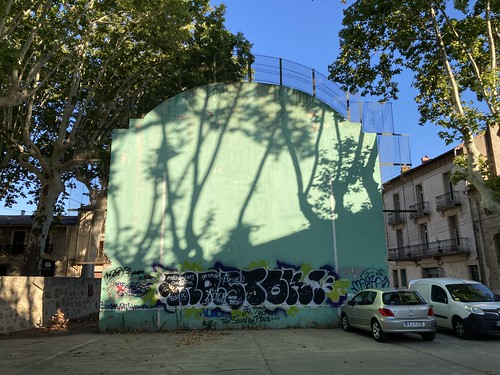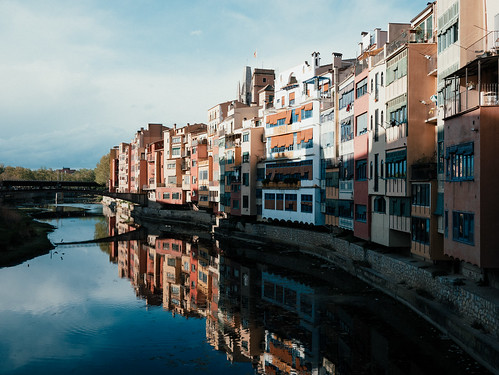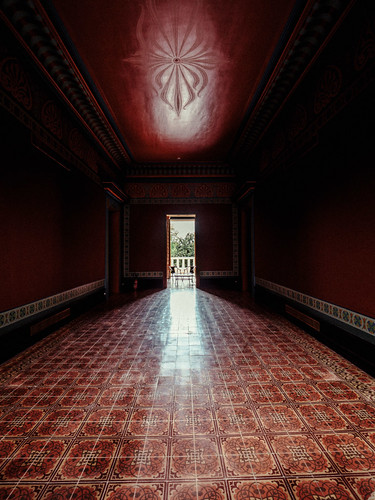by Eric Schliesser on September 29, 2023
A few weeks ago, Cyril Hédoin responded insightfully and constructively (here) to an essay I recently published @Liberal Currents. Subsequently, he did a follow up piece in which he assimilated my stance on what I call the ‘platonic skepticism’ (more on that below) of liberalism into a larger framework about different kinds of skepticism exhibited by liberals.
In the piece that triggered Hédoin’s response, I argued that so-called public reason liberalism (made influential by Rawls) and French Laïcité, or radical secularism, share three features: (i) they transcend the right/left opposition, (ii) they demand considerable public censorship, and (iii) they are both grounded in a Platonic skepticism about the ability of truth to dominate mere opinion in a democratic context.* My own alternative (liberal) position, accepts a version of (iii), but rejects (i-ii) as inimical to healthy liberal political life. So far so good.
[click to continue…]
by Kevin Munger on September 26, 2023
During the pandemic, I was seduced by a charming British management consultant. A debonair James Bond-type who went from driving a Rolls Royce around his countryside estate to orchestrating the Chilean economic experiment under Allende to teaching Brian Eno about the principles of complex systems in a stone cottage in Wales. Stafford Beer lived a remarkable life,
What the abandonment of the pinnacle of capitalist achievement for the most realistic effort to build cybernetic socialism does to a mfer.
[click to continue…]
by Chris Bertram on September 24, 2023
by John Q on September 22, 2023
It’s time for me to have my final say on a dispute with Matt Yglesias that has been going at a fairly slow pace.
A couple of weeks ago, Matt put up a post (really a Substack newsletter, but I still think in blog terms), headlined Polarization is a choice with the subtitle, “Political elites justify polarizing decisions with self-fulfilling prophesies”
I responded with a snarky but (I thought) self-explanatory note, saying “Peak both sidesism here. Republicans want to overthrow US democracy, while Democrats stubbornly insist on keeping it. Surely there is some middle ground to be found here ”
A few days ago, Matt came back to ask “I’m curious what actual things the article says you believe are wrong. You clearly didn’t like it since you choose to mischaracterize it in a mean-spirited way, but I’m not sure what you didn’t like about it.”
So, here’s my response.
[click to continue…]
by John Q on September 19, 2023
That was my suggested headline for my latest opinion piece, which ran in Australian online magazine Crikey under the sub-editors (blander IMO) choice of “We don’t need a nuclear renaissance. We need a solid plan on renewables”
The idea of the piece was to respond to Exhibit A in the case for nuclear power, the successful French construction program of the 1970s and 1980s, under the Messmer Plan. I’ve previously written about the way this program depended on the power of the French state at the time, which can’t easily be replicated today. A little while ago, I was suddenly struck by the thought that the Messmer Plan would have been much more effective if it were applied to solar and wind energy rather than nuclear. It’s over the fold (I’ve removed the lead, linking to current Australian politics)
[click to continue…]
by Chris Bertram on September 18, 2023
Sorry, when you are semi-retired and in France anyway, easy to forget days of the week. Here’s an iPhone photo, from when I happened to be out and about in Pézenas. The wall is actually something to do with a local sport, possibly “jeu de tambourin”, but I’m not quite sure of its function, and the former playing area is now a car park.

by John Q on September 15, 2023
One of the iconic moments in Australian sport occurred in at the 2002 Winter Olympics. Australians are strong in most summer sports, but we don’t have much in the way of a winter, so it was considered quite an achievement for Steven Bradbury to make the finals of the speed skating event. He was given little chance of winning, and was trailing the pack until the final seconds, when all four skaters ahead of him crashed spectacularly. Bradbury cruised past them to claim the gold medal, one of only six in Australia’s winter olympics history.
It strikes me that this is a metaphor for the current position of the EU. It’s long been regarded as an also-ran in the global economy, and geopolitics, trailing behind the US, China and Russia. And (at least 52 per cent of) the UK decided it could do much better outside. The EU has plenty of problems with the climate catastrophe, sluggish economic growth, the rise of the far-right and Russia’s invasion of Ukraine.
But compared to the crash of the others, it looks pretty good. It’s way ahead on decarbonization, has mostly recovered from the disaster of austerity, and has high living standards and (unlike the US) rising life expectancy. The far-right has had some wins, but nothing comparable to its takeover of the US Republican party. And Brexit has served as an awful warning to anyone contemplating leaving. The problem facing the EU now is how to deal with the queue of eager applicants.
Of course, prediction is difficult, especially about the future. The ECB could screw up again, and generate another long recession. The far-right could do better. On the other side of the coin, the Democrats could win convincingly enough in 2024 to put an end to the threat of Trumpism. But right now the EU seems to be dodging the worst of the global trainwreck.
by Chris Bertram on September 10, 2023
Tomorrow morning brings the 50th anniversary of the coup in Chile and the death of Salvador Allende [Le Monde has that photo], a coup which was, of course, followed by mass incarcerations, witch-hunts and murders and by the exile as political refugees of many Chileans of the left. (In today’s climate those exiles would have struggled to find sanctuary. Perhaps Sunak and Braverman would have put them on the Bibby Stockholm, a marginal improvement on a Santiago football statium.) I remember the coup, sort of, as a teenager. But not clearly: it was something shocking and far away. But the years of aftermath I do remember: meeting exiles, Latin American solidarity campaigns with them, the showings of films like The Battle of Chile and, later, Missing.
I have nothing particularly insightful to say now about the coup itself, or the later, shameful failure of the British to hold Pinochet to account for his crimes (“he was only giving orders”). But, in an atmosphere where the political right from Fox News to the British Daily Telegraph to France’s C-News whip up paranoid fantasies that might serve to legitimate “pre-emptive” action even against liberal democracies, and where Donald Trump remains a threat, it is worth re-reading Ralph Miliband’s essay from 1973, and particularly his thoughts about the editor of the London Times:
In so far as Chile was a bourgeois democracy, what happened there is about bourgeois democracy, and about what may also happen in other bourgeois democracies. After all, The Times, on the morrow of the coup, was writing (and the words ought to be carefully memorized by people on the Left): “… whether or not the armed forces were right to do what they have done, the circumstances were such that a reasonable military man could in good faith have thought it his constitutional duty to intervene”. Should a similar episode occur in Britain, it is a fair bet that, whoever else is inside Wembley Stadium, it won’t be the Editor of The Times: he will be busy writing editorials regretting this and that, but agreeing, however reluctantly, that, taking all circumstances into account, and notwithstanding the agonizing character of the choice, there was no alternative but for reasonable military men … and so on and so forth.
by Chris Bertram on September 10, 2023
Our cultural excitement for the week was a visit to the spectacular Château Laurens in Agde, an art nouveau villa built at the end of the 19th century by a spectacularly rich idle opium smoker and yachtsman, sold to friends when he lost all his money, locked up for 50 years and then reopened in June. It is right next to the railway (modernity!) and was built there so the trains could stop outside, and his friends could alight and drink champagne in the garden. Lots of other pics on my Flickr, but one below.

by Chris Bertram on September 3, 2023
The white house (Casa Masó) belonged to the celbrated Catalan architect Rafael Masó. I highly recommend the visit.

by Miriam Ronzoni on September 1, 2023

Michela Murgia – a very fine writer, and probably the most widely known feminist public intellectual within the Italian cultural landscape of the last couple of decades – died at the beginning of last month. She wasn’t very well known abroad, not even simply as a writer (her most widely acclaimed and awarded novel, Accabadora, was translated into English, and got some appreciative reviews, but that was it). I think she deserved to be, but that’s another story, and it’s now a bit too late for a celebratory obituary anyway. What I would instead like to share with you are two thoughts about how much potential the role she decided to incarnate as a public intellectual had…and yet how little it seemed to make a dent beyond the usual suspects. [click to continue…]





